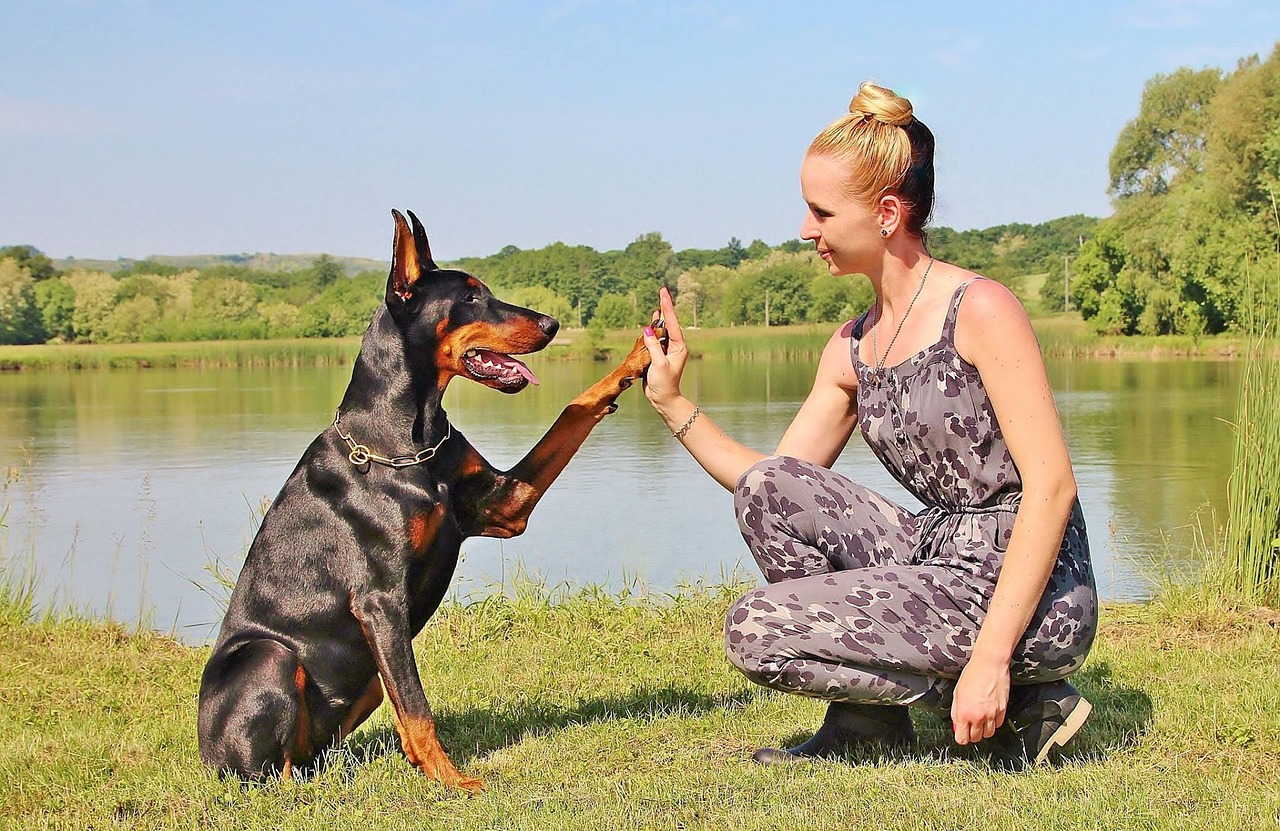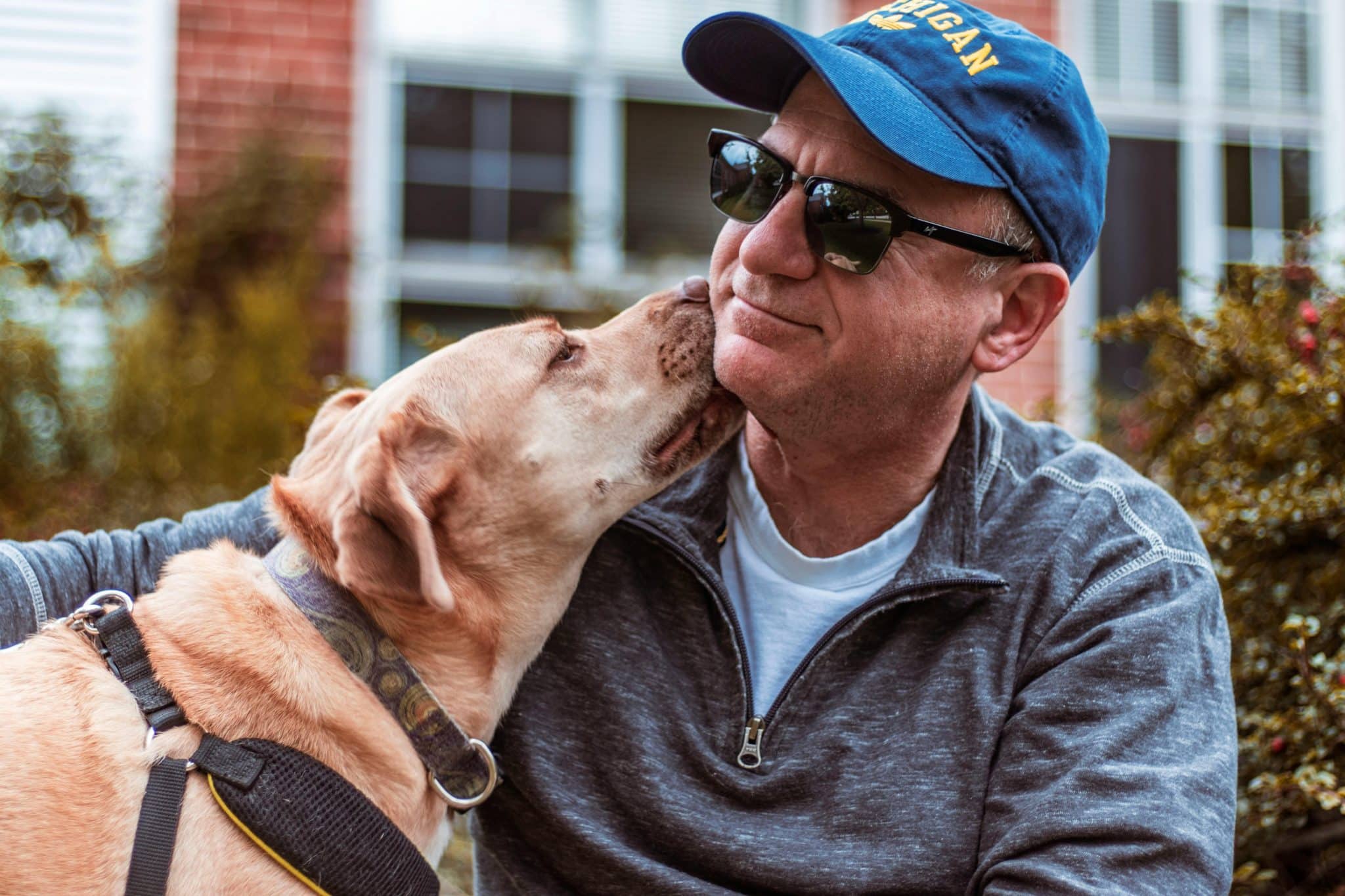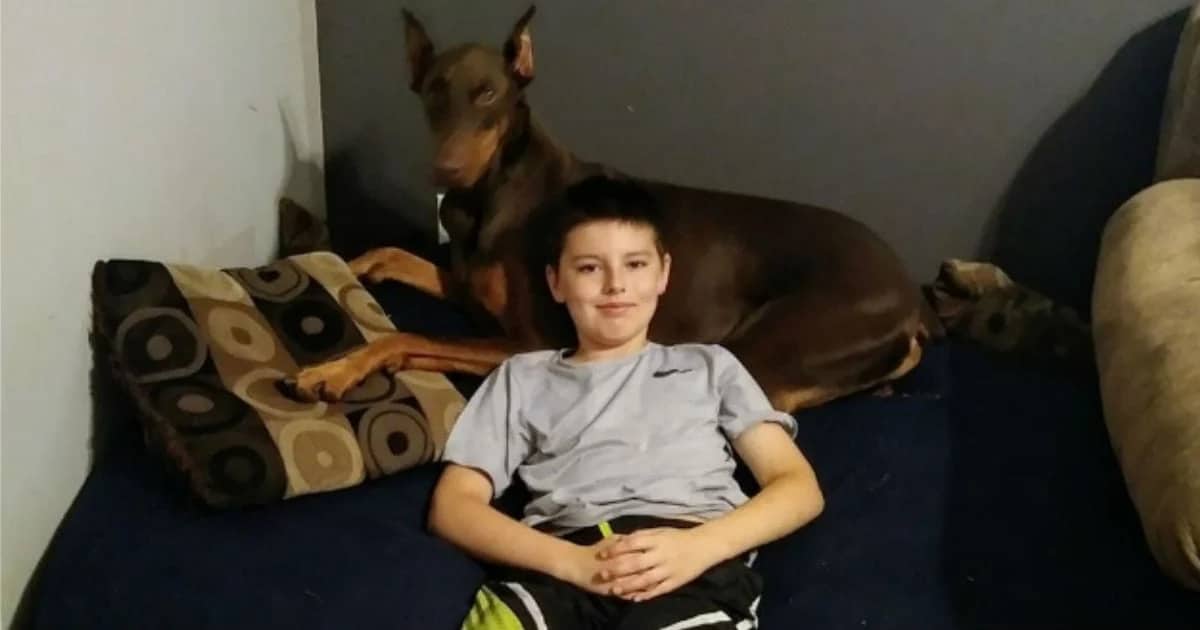 Shutterstock
Shutterstock
Dogs are often referred to as man’s best friend, and for good reason. They are loyal, loving, and intuitive creatures who seem to understand our moods better than anyone else. Some dogs, however, go beyond the role of simple companions and act as emotional support animals. Their behavior, from knowing when you’re sad to offering comfort during stressful moments, often makes them seem like natural-born therapists. If your dog has these traits, it might just be the best therapist you never knew you needed.
Dogs Can Sense Emotions Like a Pro
 Shutterstock
Shutterstock
Dogs have an incredible ability to sense emotions, a skill that makes them ideal candidates for a therapeutic role. This innate empathy is not just an instinct but a finely honed skill that dogs have developed over thousands of years alongside humans. They are experts at reading body language, tone of voice, and energy levels. Whether it’s noticing when you’re upset or simply needing a quiet moment, dogs are always present, offering their support when you need it the most.
They Can Sense When You’re Feeling Low
 Shutterstock
Shutterstock
One of the most profound signs that your dog would make a great therapist is their ability to sense when you’re feeling down. Whether it’s a rough day at work, personal struggles, or just feeling off, your dog seems to instinctively know when you need support. They don’t need you to explain yourself—your emotional state is enough for them to understand. Often, they’ll come over and curl up next to you, lay their head on your lap, or snuggle up in a way that provides silent, comforting support.
They Offer Unconditional Love and Acceptance
 Shutterstock
Shutterstock
Another trait that would make your dog the perfect therapist is their unconditional love and acceptance. No matter how you’re feeling, what you’ve been through, or what mistakes you’ve made, your dog loves you without hesitation or judgment. This is the type of love that a good therapist provides—one that is free of criticism, allowing you to feel safe and unburdened by guilt or shame. Dogs don’t care if you’re having a bad day or if you’ve made errors; they are always ready to offer affection and companionship.
They Are Masters of Listening
 Shutterstock
Shutterstock
Your dog is the ultimate listener, and one of the most important skills a therapist can have is the ability to listen without interrupting or offering unsolicited advice. When you vent, your dog doesn’t try to offer solutions but simply listens. They patiently stay by your side, attentive and calm, offering you the space to express your thoughts without judgment. Whether you’re venting about your day or expressing concerns, your dog’s listening ability helps you process and release your feelings.
They Know How to Be Present in the Moment
 Shutterstock
Shutterstock
Dogs have an incredible ability to stay present in the moment, which is an important skill for a therapist. They don’t dwell on the past or worry about the future—they focus on the here and now. Whether they’re playing fetch, enjoying a belly rub, or simply lying at your feet, dogs help you tune into the present, which is especially important when you’re feeling anxious or stressed. A good therapist encourages their clients to stay grounded in the present moment, letting go of unnecessary worry.
They Help Calm Your Nerves
 Shutterstock
Shutterstock
If you’ve ever felt overwhelmed, you know how quickly stress and anxiety can take over. Fortunately, dogs are experts at helping you calm down. Their presence alone can help lower stress levels by reducing cortisol (the stress hormone) and promoting the release of oxytocin, the “feel-good” hormone. Just petting your dog, sitting together in silence, or even going for a walk with them can work wonders for your emotional state.
They Bring Joy and Distraction When You Need It Most
 Shutterstock
Shutterstock
A great therapist knows that sometimes, a distraction is just what you need to get through a tough moment. Dogs excel at lightening the mood, whether it’s through playful antics, silly behaviors, or simply wanting to go for a walk or play fetch. They have a remarkable ability to bring joy and laughter into your life, providing a healthy distraction from life’s challenges. When life gets too heavy, your dog helps remind you that it’s okay to take a break and enjoy simple moments of happiness.
They Can Teach You About Self-Care
 Shutterstock
Shutterstock
Dogs are natural experts when it comes to self-care. They know when they need rest, when it’s time to eat, and when it’s time for play. Watching your dog take care of themselves can remind you of the importance of caring for your own physical and emotional needs. A good therapist encourages clients to make self-care a priority, and your dog leads by example.
They Provide a Safe Space to Open Up
 Shutterstock
Shutterstock
A great therapist creates a safe, non-judgmental environment where you can freely express yourself. Your dog does exactly that. They provide a sense of security, making you feel safe to open up, express your feelings, and work through your emotions. Whether it’s sitting quietly by your side or giving you a gentle nudge, your dog’s presence creates an atmosphere of trust and comfort.
They’re Always There When You Need Them
 Shutterstock
Shutterstock
Dogs are known for their loyalty, and this unwavering devotion is one of the most important aspects of their therapeutic qualities. No matter what time of day or night, your dog is always there to provide support. Whether you’re feeling lonely, stressed, or just need a hug, your dog is ready to offer their love and companionship. This consistent availability mirrors the way a great therapist is always ready to support their clients during tough times.
They Offer Unspoken Comfort
 Shutterstock
Shutterstock
Sometimes, words aren’t enough to express how we feel, and your dog understands this. Their ability to offer comfort without saying anything is a unique and invaluable trait. When you’re feeling down, your dog may not need to speak—they simply sit next to you, rest their head on your lap, or nudge you gently. This quiet, unspoken comfort is what many people need to feel reassured and supported.
The Doggone Best Therapist Ever
 Shutterstock
Shutterstock
While your dog may not have a degree in psychology, they possess the emotional intelligence and skills to be the perfect therapist. They know when you need comfort, when to listen, and how to lift your spirits. From offering unconditional love to helping you stay grounded, your dog has all the qualities of a great therapist. So, the next time you’re feeling down or overwhelmed, just remember: your dog is likely the best therapist you’ll ever have, always ready with love and support.

 2 hours ago
1
2 hours ago
1


















 English (US) ·
English (US) ·